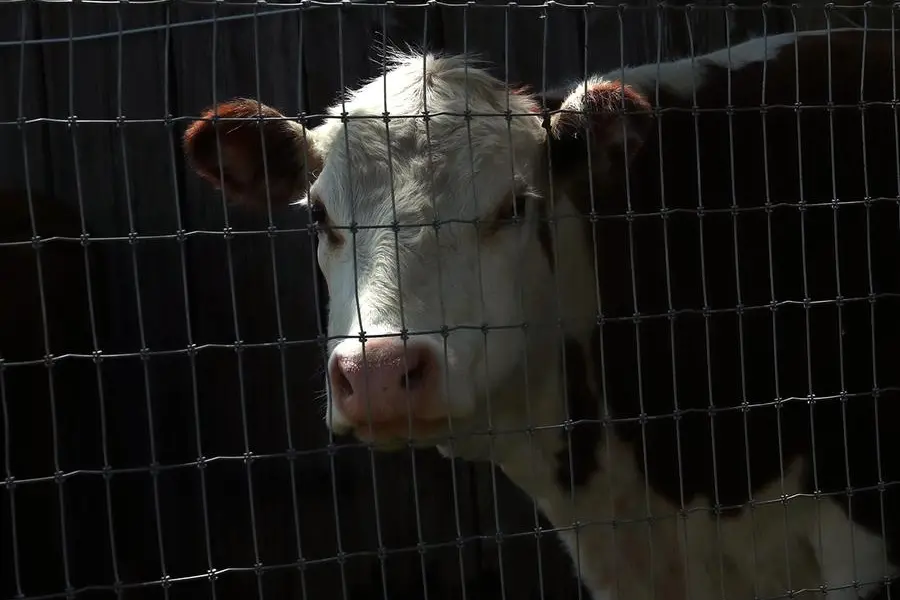PHOTO
US health officials have detected an atypical case of "mad cow disease" in a beef cow at a slaughter plant in the state of South Carolina, they announced Friday.
The US Department of Agriculture said in a statement that the animal "never entered slaughter channels and at no time presented a risk to the food supply or to human health in the United States."
The agency said that the United States has a "negligible risk status" for bovine spongiform encephalopathy (BSE), as the neurologic disease is officially called, and "we do not expect any trade impacts as a result of this finding."
BSE is linked to the fatal human condition Creutzfeldt-Jakob disease if contaminated meat is eaten.
The atypical variant sporadically occurs in older cattle, while the classic form is spread when farmers feed their herds with the meat and bone meal of infected animals.
The classic form poses more danger to humans.
This is the seventh time BSE has been detected in the United States over the past 20 years and all but one of them have been atypical, officials said.
Past BSE cases in the United States, Canada, Israel, Europe and Japan have caused disruptions to the global food trade worth billions of dollars.
But the US health agency was confident the fresh finding "will not change the negligible risk status of the United States, and should not lead to any trade issues."





















